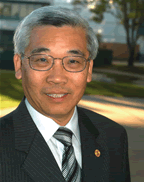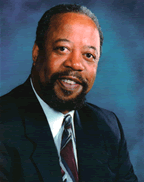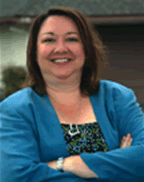CSUF Administrators and Staff Focus on Meeting Needs by Offering More Services
November 1, 2006
By Pamela McLaren
University administrators and staff members are going beyond the classroom
to help make sure that Cal State Fullerton students have a good college
experience.
That means looking at the areas that students are interested in and
their needs — physically, socially and culturally.
Howard Wang, associate vice president of student
affairs, is looking
to national trends while considering the needs of the student body. His
focus this fall is to seek more affordable housing for students and offer
more health and mental health
services, especially in the way of preventive
medicine. Other areas of student affairs, he noted, are looking into such
areas as academic support, activities for involvement and interaction with
peers.
“Our focus is service,” Wang said.
Robert Palmer, vice president
for student affairs, said that his division is looking at ways to better
deliver services and to engage students.
“College itself is very stressful. Students have difficulty navigating
through the different routine, being on their own, etc. We have to find
ways to help them do this successfully.
“We do know that students have a familiarity with technology,” Palmer
added. “So we’re looking at enhancing and embellishing the
student portal. We’re exploring the impact of Blackboard for student
affairs and we’re looking at using technology to offer students advice
and other services.
“The key role is to offer students co-curricular and extra curricular
activities that will help them grow not only intellectually, but as individuals,” he
said. “We believe there is a lot of potential out there.”
Student affairs also is reaching out to parents. That’s why there
are parent orientations.
“More and more parents are insisting on being involved in a mutually
supportive way. It has to be a partnership,” Palmer said.
A big push for Wang will be to make sure that students know what programs
and services are available to them, especially those that educate and promote
healthy activities and lifestyles. Already the campus has placed an emphasis
on responsible drinking through an educational campaign and a number of
alcohol awareness programs — even though campus research shows that
CSUF
students drink at a lower rate compared with students at other colleges
across the country. The important thing, said student affairs officials,
is that the information is available if students need it.
“Last year, we added additional counselors and this year we hope
to hire a training coordinator and design preventive programs to help students
learn how to make better decisions on eating, studying and exercising to
stay healthy,” said Wang, adding that a spring campus health fair
is in the planning stages. “A student who is not healthy is not going
to learn to the best of his ability and his experience here at Cal State
Fullerton will be less than it can be.”
Housing also is a concern. In the early 1960s, the university provided
some student housing, but the facilities rarely reached optimum occupancy
and reverted to private interests. In 1988, the campus built the Cobb Residence
Halls and the demand for housing has soared. In 2002, the university completed
a second housing complex and plans are being discussed for a third complex.
“Turnover in area apartments is very low and rates are going up,” Wang
said. “We need to find a way to meet the need for more housing or
students will go elsewhere.”
“Our goal is to help students have a successful transition to college
and one way has been to give them a good orientation to campus life, ” said
Kandy Mink Salas, dean
of students, who oversees areas that focus on the
social and cultural needs of students. “We also hope to get them
involved in the campus community through student government and the Associated
Students spirit program.”
At present, there are more than 250
student clubs and organizations on campus, ranging from those that relate to majors to those centered on
social, sporting and cultural activities.
There is a Volunteer
and Service Center that offers students opportunities
to get involved with the community beyond the campus and with those who
may be less fortunate than they are.
In addition, a Student
Leadership Institute (SLI) was formed because “a
need was seen. Students have been involved and a part of running the program
from the start,” said Mink Salas, who noted that each spring a one-day
Leadership Conference is held to offer student opportunities to strengthen
their leadership skills. The program includes workshops on leadership,
multiculturalism and social justice, as well as programs featuring motivational
speakers and networking opportunities.
Jamie Kammerman, director of the Student Leadership Institute, has been
involved in the program since her freshman year, first as a participant
and as a facilitator in EMBRACE — Educate Myself for Better Racial
Awareness and Cultural Enrichment — a collaboration between the Student
Leadership Institute and the Multicultural Leadership Center. Last year,
she served as EMBRACE director.
“The nice thing is that there are varying levels of involvement for
students within the SLI program. You can just attend the institute conference
or you can become a SITM [SLI Intro-Team Member] and develop your public
speaking skills by serving as workshop presenters, making information announcements,
collecting workshop evaluations and assisting with SLI events,” the
senior sociology major said.
“One of the neat things about the program is that it is run by students,” Kammerman
said. “We have a committee of eight students and we are all involved
in the process of decision making. It’s also a great way to meet
people, to network. It’s helped to clarify my passion for leadership
and pursuing my future career.”
“We have really made a push to get students involved,” Mink
Salas stressed. “Two years ago, we started a ‘Get Involved’ campaign.
Now, when we hear students say to each other ‘Get Involved,’ we
feel we have been successful.”





 Produced by the Office of Public Affairs at California State University, Fullerton.
Produced by the Office of Public Affairs at California State University, Fullerton.